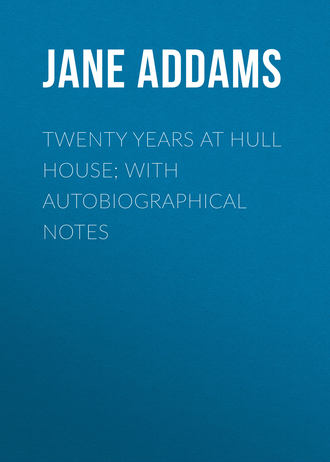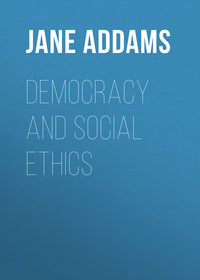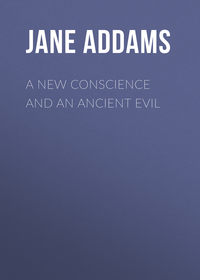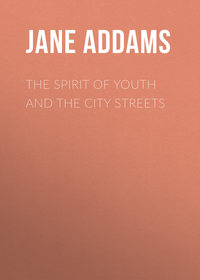 полная версия
полная версияTwenty Years at Hull House; with Autobiographical Notes
Life in the Settlement discovers above all what has been called "the extraordinary pliability of human nature," and it seems impossible to set any bounds to the moral capabilities which might unfold under ideal civic and educational conditions. But in order to obtain these conditions, the Settlement recognizes the need of cooperation, both with the radical and the conservative, and from the very nature of the case the Settlement cannot limit its friends to any one political party or economic school.
The Settlement casts side none of those things which cultivated men have come to consider reasonable and goodly, but it insists that those belong as well to that great body of people who, because of toilsome and underpaid labor, are unable to procure them for themselves. Added to this is a profound conviction that the common stock of intellectual enjoyment should not be difficult of access because of the economic position of him who would approach it, that those "best results of civilization" upon which depend the finer and freer aspects of living must be incorporated into our common life and have free mobility through all elements of society if we would have our democracy endure.
The educational activities of a Settlement, as well its philanthropic, civic, and social undertakings, are but differing manifestations of the attempt to socialize democracy, as is the very existence of the Settlement itself.
[Editor: Mary Mark Ockerbloom]
This chapter has been put on-line as part of the BUILD-A-BOOK Initiative at the Celebration of Women Writers. Initial text entry and proof-reading of this chapter were the work of volunteer Samantha M. Constant.
[Editor: Mary Mark Ockerbloom]




